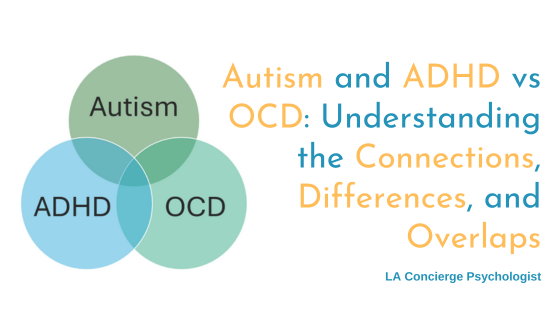The Self-Esteem-Destroying Effects Of Growing Up With ADHD
If you grew up with ADHD, you probably spent your childhood thinking there was something wrong with you— especially if your ADHD was undiagnosed. From a very young age, you were asked to stay still or stay attentive for long periods of time. Yet something inside you made this extremely difficult, despite how much you may have tried. As a result of your “bad behavior,” you were scolded, insulted, and punished by your parents and teachers.
Things probably didn’t improve much during adolescence unless you received a lot of support. Despite your ability to hyper-focus on your hobbies and interests, you may have struggled to shift your attention to less exciting tasks. Procrastination and missed deadlines were likely a regular occurrence. Your parents probably didn’t understand why you could spend hours enjoying video games, music, or sports without finding any time or focus for homework or chores.
Despite your desire to live up to other people’s expectations, your ADHD made that extremely difficult. Without appreciating how hard you were trying, your parents and teachers assumed you were lazy, unmotivated, or unintelligent. They scolded, reprimanded, and corrected you to stop behaviors they interpreted as willfully disobedient, despite your desire to please them.
The lasting mental health effects of growing up with untreated ADHD
If any of this sounds familiar, you’re not alone. By the age of ten, a child with ADHD hears an estimated 20,000 corrective or negative comments, according to Dr. Michael S. Jellinek, a psychiatry and pediatrics professor at Harvard Medical School.[1] A child who is exposed to so many invalidating judgments will inevitably internalize them.
The shame and low self-esteem that can result from growing up with ADHD are often carried into adulthood. They are also reinforced during college, in the workplace, and in a person’s personal relationships. This is especially true for individuals who are never given any tools to manage their ADHD. Sadly, feeling like a failure becomes their default mental state.
There are serious consequences to thinking this way. In addition to being a significant driver of depression, low self-esteem can also lead to anxiety as well as a preoccupation with people-pleasing. Some people invest so much energy in trying to make others happy that they lose sight of their own wants and needs. While they might imagine that being hard on themselves will spur personal growth, the opposite is usually true. Self-critical people often avoid failure and are less likely to challenge themselves. Their reluctance to try new things and their tendency to give up quickly stifle personal development.
Low self-esteem also causes some people with ADHD to hide their true selves. This makes it much harder for them to create and nurture deep relationships. It can also prevent them from seeking an ADHD diagnosis, asking for academic accommodations, or accepting support from a therapist or coach.
How to stop feeling like a failure as an adult with ADHD
It’s perfectly natural to get frustrated when things don’t go as you’d hoped. There’s also nothing wrong with wanting to become a better person. At the same time, continually looking down on yourself won’t help you improve yourself, nor will it make you feel any better.
You’re only human; it’s just not possible to avoid every mistake. Instead of trying to be perfect, accept that things will inevitably go wrong sometimes and try not to be so hard on yourself. You can practice self-compassion by cultivating the following three things within yourself:
1. Self-kindness
The next time you feel like you’ve failed, stop and consider whether you’re being too hard on yourself. Consider whether the thoughts going through your head (“I’ll never get this right” or “I am a failure”) are something you would say to your best friend. If they made the same mistake, would you tell them they are a terrible person who will never amount to anything? Or would you tell them it’s okay and not to worry about it?
2. Belief in a common humanity
It may look like everyone else has their lives together, but that’s only because people tend to showcase the good in their lives and hide the bad. Everyone struggles from time to time, and there are plenty of people who can empathize with what you’re going through.
3. Mindfulness
Despite what you may have heard, mindfulness doesn’t always mean sitting cross-legged and meditating. In the context of self-compassion, it just means taking a step back from stressful situations and viewing them more objectively. Making a mistake can be painful, but you don’t have to let uncomfortable emotions sweep you away. Instead, recognize that this is only a moment in time that will soon be over.
ADHD shame and depression is not permanent
It is impossible to avoid mistakes and challenges, but you do have control over how you respond to them and how you treat yourself. With a bit of self-compassion, you can learn to cope with obstacles related to your ADHD without burying yourself in shame and self-judgment.
As ADHD specialists, we help people counteract their ADHD depression and shame. By promoting self-compassion and dismantling internalized ableism, you can lead a happier life. Visit our ADHD treatment page for more information. You can also book a free 20-minute consultation call with Dr. Priscilla Barajas or Dr. Jenifer Goldman.



